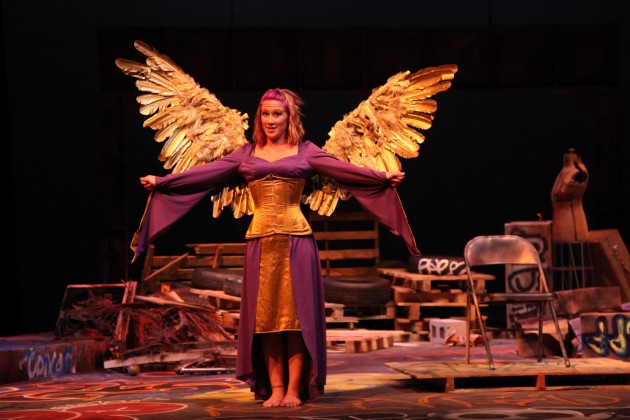Book to celebrate CSC’s 225-year history

It’s April 3 1865 and Capt. Abel Leavenworth is on the outskirts of Richmond, Va. awaiting an order.
He’s leading a group of boys into Richmond and is going to be the first to make it to the city during the Civil War. Other brigades were closing in though, so Leavenworth made a run for it— literally. He just took off toward the city, but his clothes were heavy so he began to shed them as he continued running.
He made it to the city first, but only in his long johns. As a reward, he was appointed assistant provost marshal of Richmond. A quarter century later, Leavenworth purchased the building where the Rutland Grammar School was and became principal of the State Normal School. Now, Leavenworth Hall stands as a tribute to a man who did a lot for Castleton.
With the 225th anniversary of the college this year, historical stories about people like Leavenworth are surfacing in a new book by CSC faculty and administrators.
CSC President DaveWolk said he wanted to commemorate the 225-year milestone it by writing an account of just how far the school has come.
“There’s never been anything written about the history of the college,” Wolk said. “Makes sense to do it now for the 225th anniversary.”
The plan for the book got underway about two years ago and it will be published in December. For the book, Wolk gathered a group of professors who showed interest in writing the history of the college.
“While writing my chapter for the book it was so interesting to see connections made,” English Professor Burnham Holmes said. “It was like a big puzzle and I had to just plug the pieces in and it all started to come together.”
Castleton State is the oldest college in Vermont and the 18th oldest in the country. It started in 1787 as the Rutland County Grammar School, which was started by the leaders of Castleton at the time.
“Grammar schools were like high schools,” Academic Dean Tony Peffer said. “They prepared you for college. It was a New England requirement at the time to have one in every village.”
In 1828, Rutland County Grammar school became Vermont Classical High School, but for only two years. In 1830, Vermont Classical High School became Castleton Medical College.
The medical school was unique because it was the first medical college to be founded in Vermont and during its time awarded 1,400 medical degrees, more than any other medical school in New England.
But in 1867 after 37 years, Castleton Medical College became the state Normal School, a school to educate teachers.
“Sleigh rides were a big hit for students at the time,” said recently retired CSC communication director Ennis Duling. “With no cars during the winter that’s what they did for fun.”
The Normal School lasted 80 years, before it became Castleton Teachers College.
“The World War II era at the college had quite an effect on the campus and college,” said history professor Andre Fleche, who researched the 40s and 50s. “There were quite a few volunteers from Castleton. Both men and women left for war.”
In 1962, Castleton Teachers College became what we know it as today, Castleton State College.
History professor Chris Boettcher was assigned to write about Castleton during the 1970s and 1980s.
“In 1971 Leavenworth hall burned down and in 1979 there was an occupy movement on campus,” Boettcher said. “It was a very controversial time for Castleton and the country.”
Although Castleton has such a long and storied history, it’s arguable that since Wolk became president of the college in 2001, the college has gone through more significant changes than it did the 214 years prior.
“We have put $70 million worth of renovations into its infrastructure,” Wolk said. “Including the $26 million spent on renovations to Spartan stadium and Glenbrook.”
Professor John Gillen has seen a lot of this change throughout his career at Castleton that has spanned 42 years.
“Students in the 70s were more political, in the 80s they were more about financial gain, and today’s students are really tech savvy,” Gillen said. “The students have been sincere and honest throughout though, which is important.”







